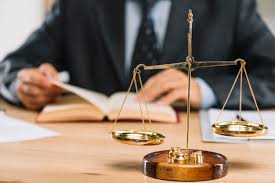Sometimes, the court releases individuals on parole after a criminal conviction in California. Individuals have to obey certain rules of the court while on parole. Individuals who violate their parole can be taken into custody or arrested.
Penal Code 3056 regulates custody while awaiting parole revocation hearings in California. The court can revoke probation when individuals violate their probationary terms.
Parole in California
Parole allows individuals to get out of jail or prison without serving the full extent of their sentences in California. Individuals can sometimes get out on parole for “good behavior.” This allows them to exit the prison or jail system and begin moving forward with their lives.
However, individuals are not free to do whatever they want while they are out on parole. They have to obey a number of regulations set down by the court. Parole conditions are not the same in every case. For example, the court may order an individual to:
- Continue living in a specific county
- Register with authorities in their area
- Agree to submit to searches by law enforcement
- Avoid committing any new crimes
Individuals could also be required to meet with a parole officer on a regular basis. Failing to adhere to court conditions can lead to a parole violation. Parole violations can then lead to an arrest in California. Individuals can then receive a parole revocation hearing after a set period of time.
For a free legal consultation with an awaiting parole revocation hearings lawyer serving California, call (310) 896-2723
PC 3056 and Custody Before a Parole Revocation Hearing
The court will conduct a parole revocation hearing if someone is accused of violating their parole. However, this hearing will not take place immediately. Often, there is a delay between the time the individual is arrested and the time the hearing begins.
Generally, individuals are sent to county jail under PC 3056 regulations. However, there are exceptions to this regulation. For example, some counties do not have a jail facility. In this case, individuals can be sent to a different housing facility for inmates.
Sometimes, individuals under the age of 18 are released on parole. If they violate their parole, they are not sent to county jail. Instead, they are taken to a juvenile detention facility as directed under PC 3056. You can learn more about custody under PC 3056 from the Simmrin Law Group.
California Awaiting Parole Revocation Hearings Lawyer Near Me (310) 896-2723
Immediate Consequences for Parole Violations
If you’re accused of violating your parole, the legal response can be immediate. Prior to your parole hearing, you may be taken into custody and held at county jail until your hearing. Moving into your hearing, you can face two categories of consequences.
If you did not break any laws while allegedly violating your parole, your consequences are going to be less severe. You may return to prison for up to one year if you cannot contest the charges in your parole revocation hearing. You’ll need to plead your case with the Parole Board’s deputy commissioner – a process that our team can help with.
Parolees accused of breaking the law while also violating their parole face additional consequences. You may face additional criminal charges, compounding your pre-existing consequences with additional fines and jail time. If you cannot contest the charges brought against you, your parole will be revoked, and you may return to prison.
Click to contact our Understanding California’s Penal Code today
Common Parole Violations
The specificities of your parole should have been laid out for you during your initial parole hearing. With that in mind, you’ll have an idea of what kinds of behaviors California law enforcement wants you to avoid.
Some of the most common parole violations to result in revocation hearings include:
- Violating your established curfew
- Leaving your home while under house arrest
- Failing to check in with a parole officer
- Testing positive for drug use or alcohol consumption
- Leaving a dedicated care facility before you’re given permission
You will also face a possible parole revocation if you’re accused of engaging in criminal activities. You can contest these accusations with help from a criminal defense attorney.
Complete a Free Case Evaluation form now
Parole Revocation Hearings in California
Individuals accused of violating their parole can face a parole revocation hearing in California. During this hearing, the prosecution works to show there is probable cause that an individual violated their parole. The prosecution does not have to show beyond a reasonable doubt that a parole violation occurred.
A parole revocation hearing takes place in front of a parole board. At this kind of hearing, lawyers can offer evidence to show that their client’s parole was or was not violated. A criminal defense lawyer can also protect their client’s rights during these hearings.

A defendant testifies at a parole revocation hearing. You can work with a criminal defense attorney to address the accusations that might otherwise see your parole revoked.
Results of a Parole Revocation Hearing in California
A parole board decides how to resolve a parole revocation hearing. There are two ways in which to do this. The board can decide the individual did not violate their parole. In this situation, an individual can remain on parole here in California.
Individuals placed back on parole must continue to adhere to court regulations. The length of time an individual spends on parole in California can vary. However, in most cases, individuals remain on parole for around three years. In some cases, individuals can spend up to 10 years on parole.
In the event the parole board decides the individual violated their parole, the board can revoke their parole. Individuals face a maximum of one year in jail for violating their parole. However, individuals can end up spending more time in jail if they are accused of violating parole after committing another crime. In this case, the individual could face additional criminal charges.
How to Win a Parole Hearing
You can win your parole revocation hearing by contesting the new charges brought against you. A criminal defense lawyer can help you establish your location at the time of an alleged violation as well as a record of your behavior. This, partnered with additional examples of good behavior, may be enough to prevent the revocation of your parole.
Should you face additional criminal charges, our criminal defense attorneys can refute the allegations brought against you.
If you win your parole hearing, you can remain in accordance with your existing parole agreement. Once you finish your term, you can speak with your parole officer and a legal representative about your next steps.
Ask a Lawyer About Custody While Awaiting a Parole Revocation Hearing
Are you in custody while awaiting a parole revocation hearing? Penal Code 3056 determines where you will be housed. The Simmrin Law Group can help you handle a parole revocation hearing. You can call us or complete our online contact form.
Reach out to a criminal defense lawyer in Los Angeles now. We’ll go over your situation during a free case consultation and help with your hearing.
Call or text (310) 896-2723 or complete a Free Case Evaluation form


